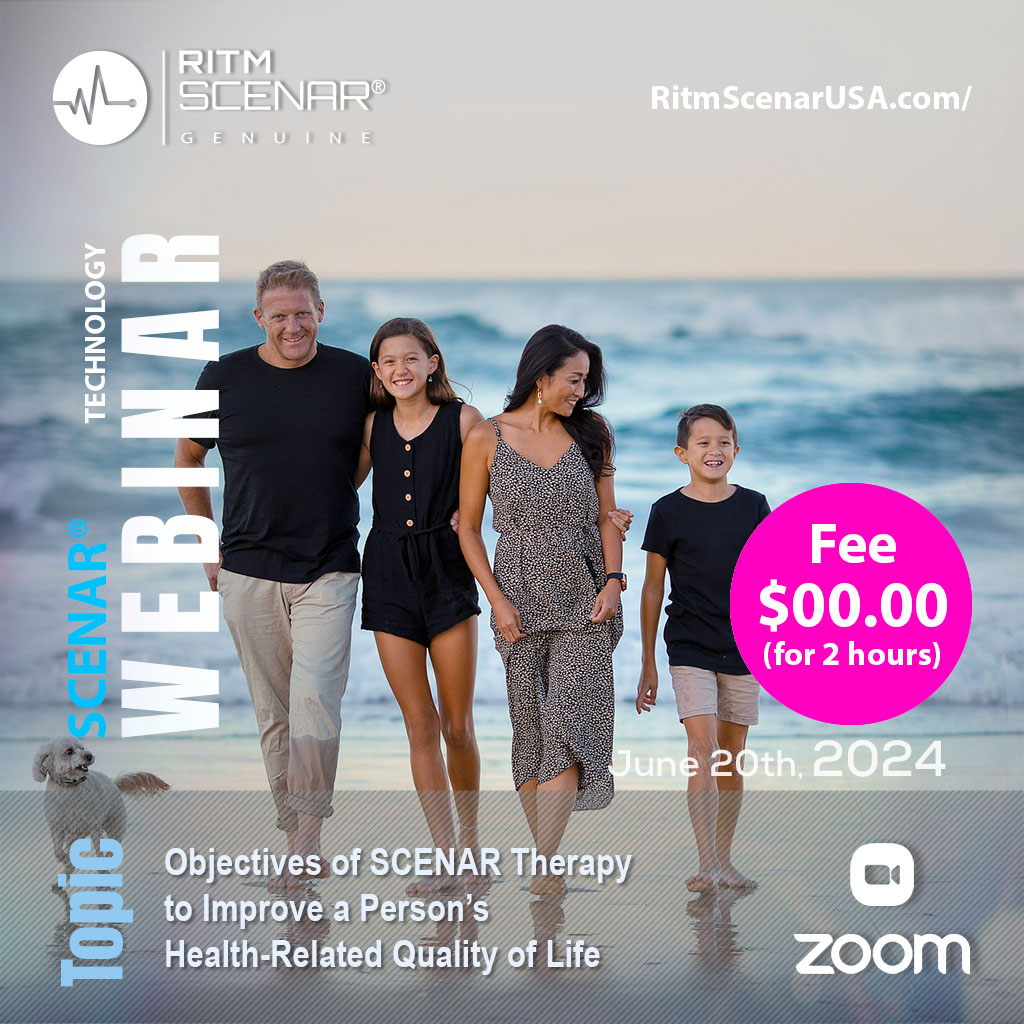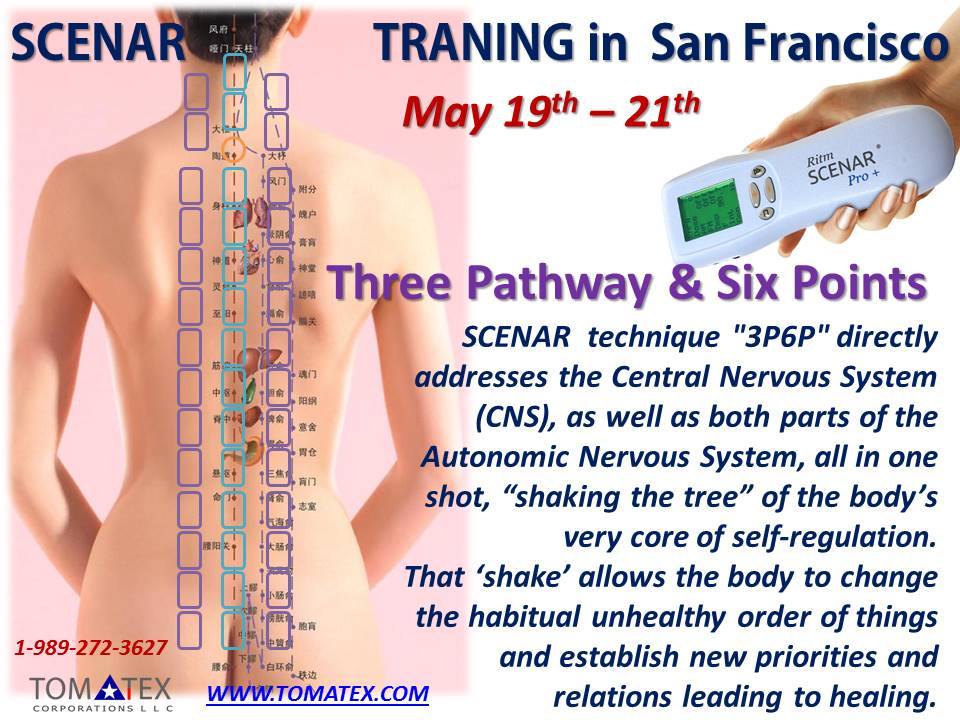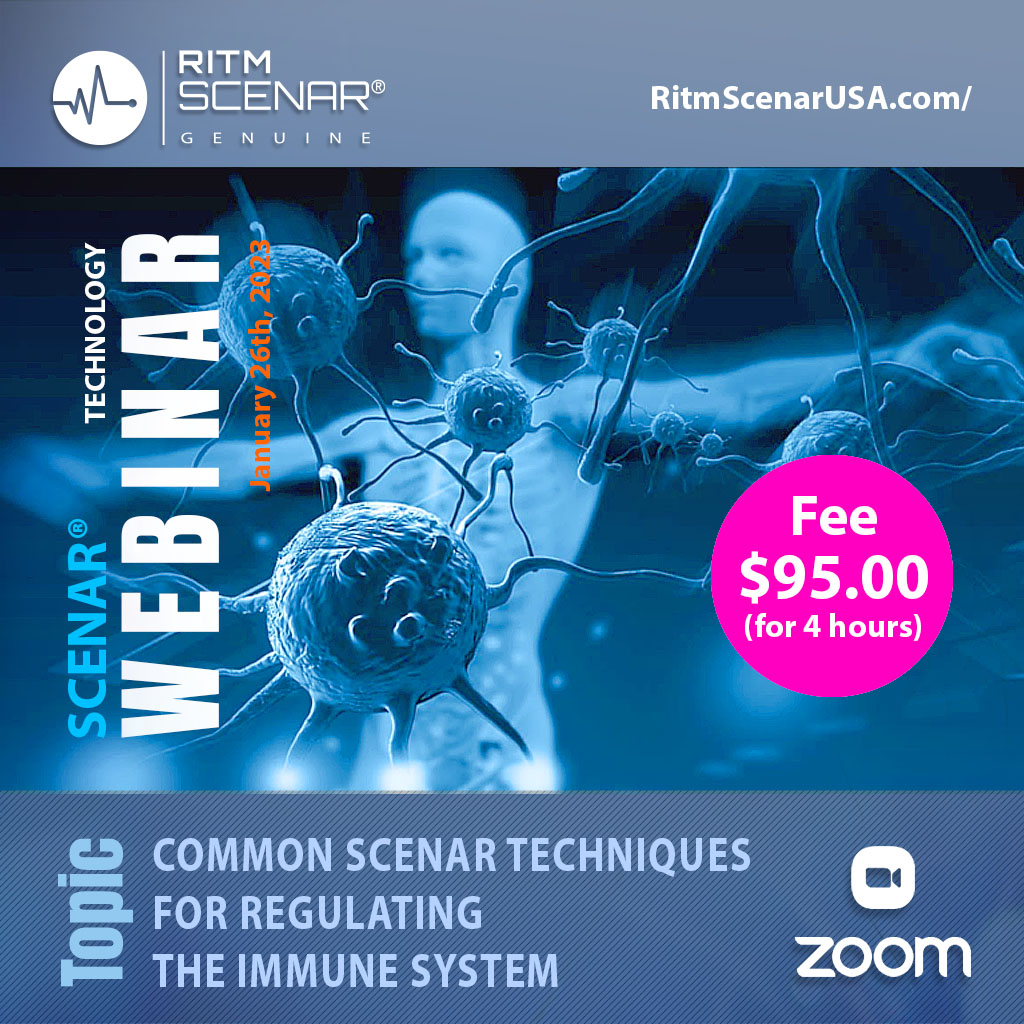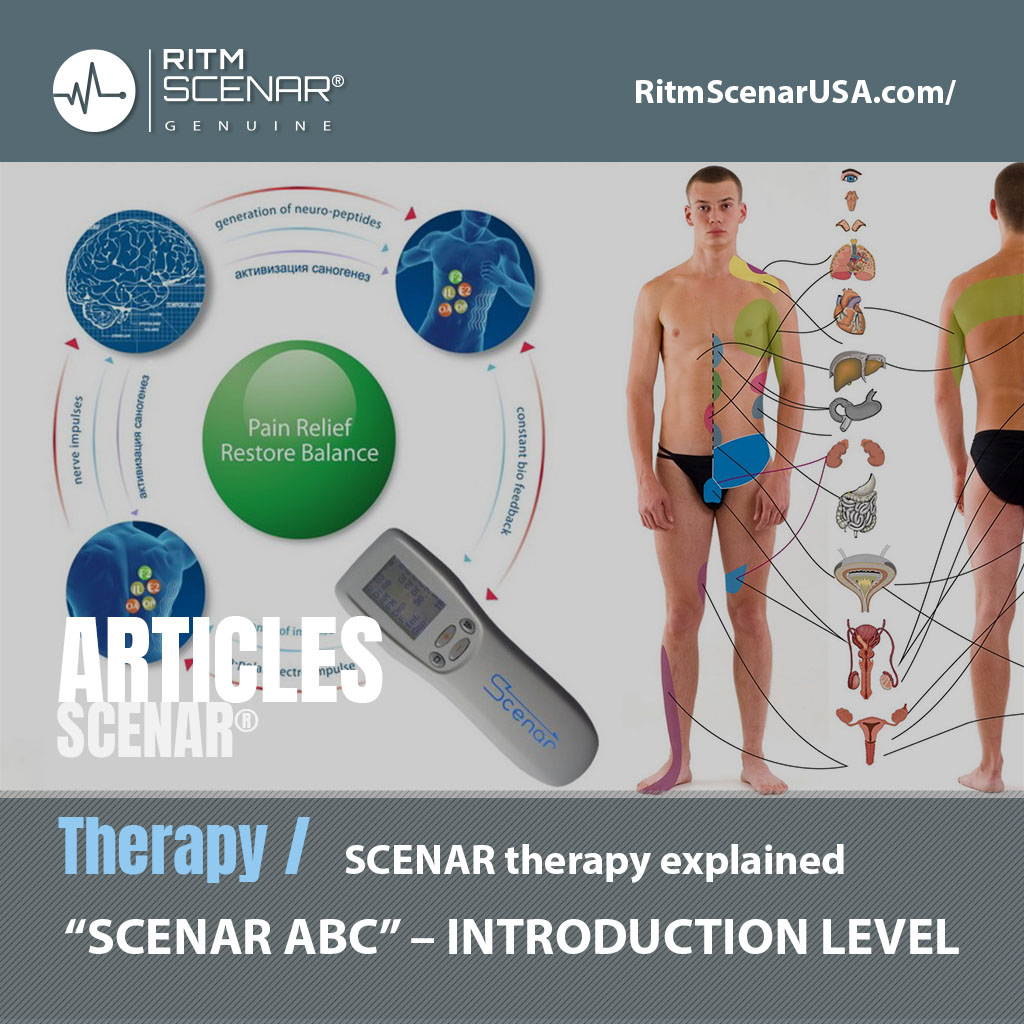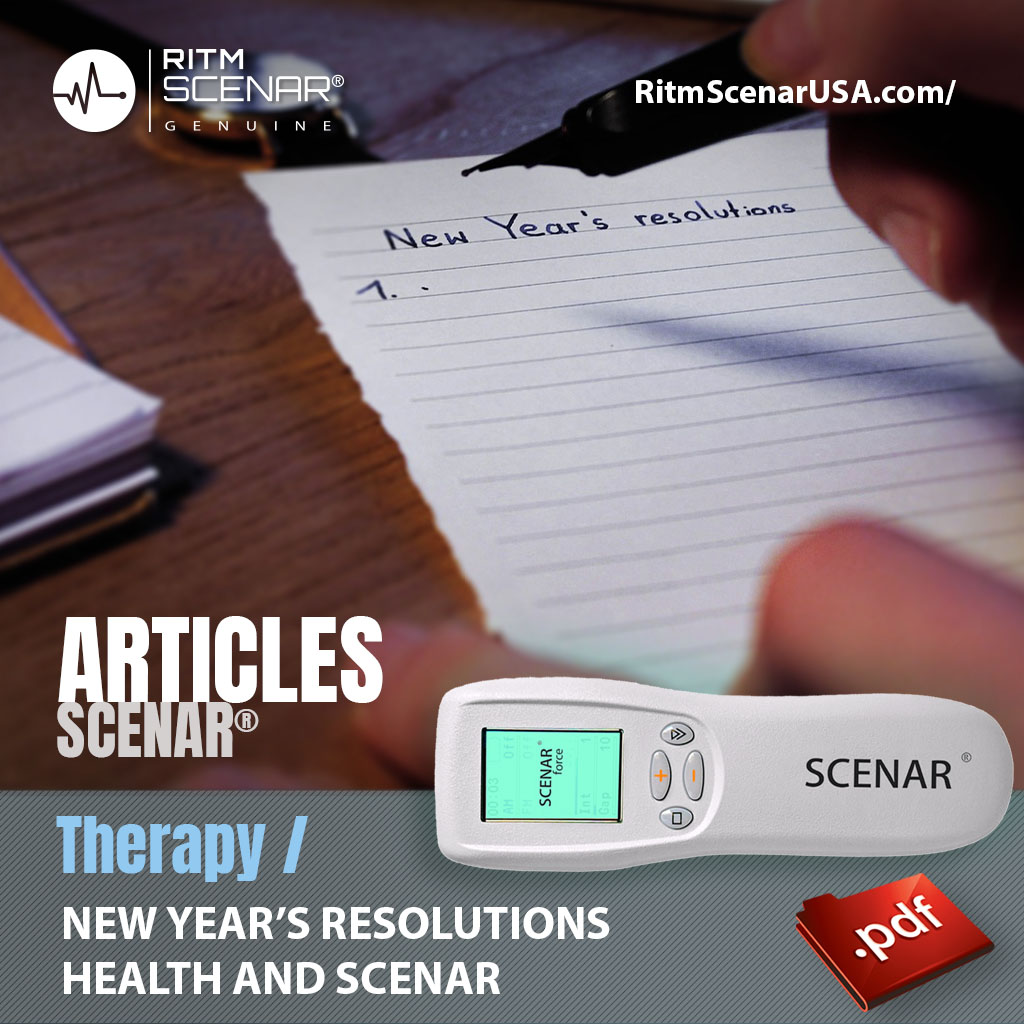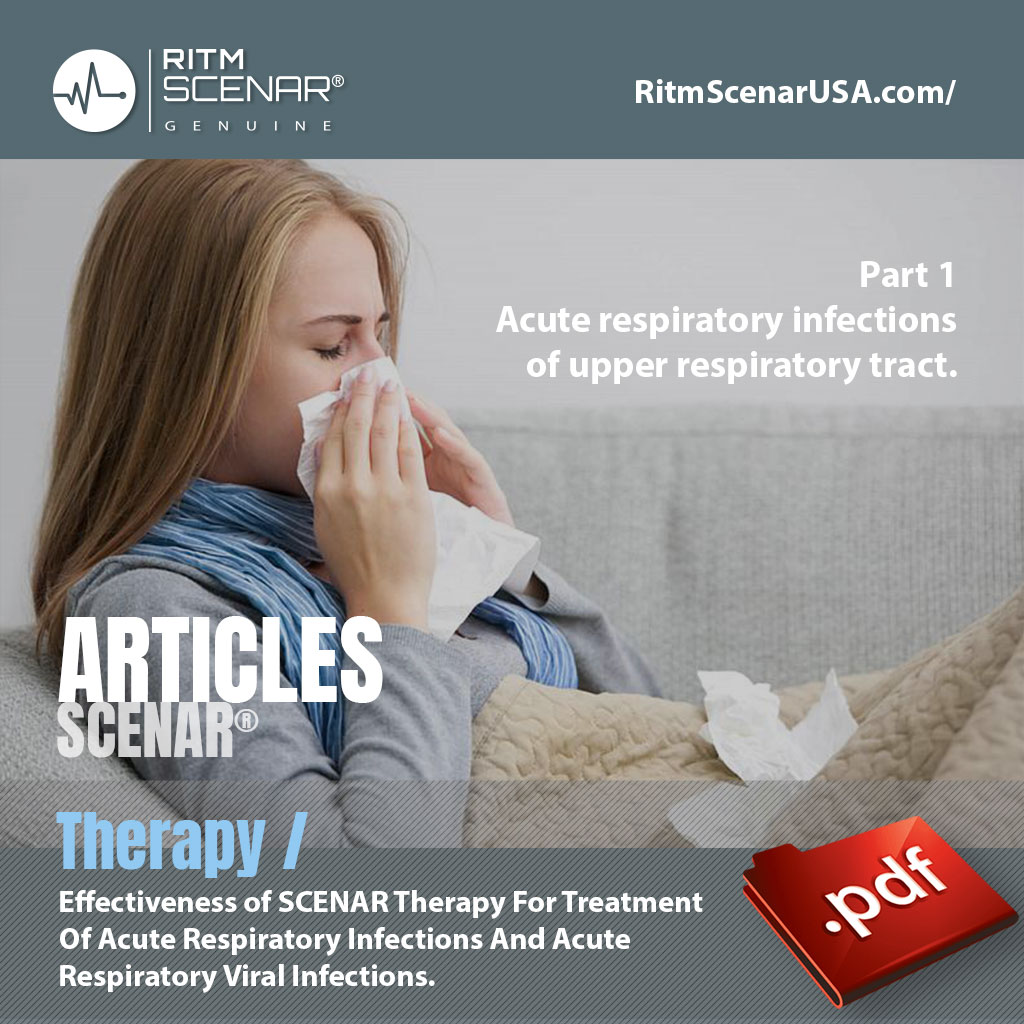
Effectiveness of SCENAR Therapy for Treatment of Acute Respiratory Infections and Acute Respiratory Viral Infections.
No Comments
Part 1 Acute respiratory infections of upper respiratory tract.
Grebenyuk, Ph.D., MD
Acute respiratory infections (ARI) are a group of inflammatory diseases of the respiratory tract of diverse localization and etiology, including acute respiratory infections and acute diseases of non-infectious etiology.
By localization, they are divided into diseases of the:
- upper respiratory tract (rhinitis (common cold), sinusitis, ear infections, acute pharyngitis or tonsillopharyngitis, epiglottitis, and laryngitis);
- lower respiratory tract (pneumonia and bronchiolitis).
Most of these diseases are caused by viral infections that enter the patient’s body from the outside.
Influenza, acute respiratory infections and acute respiratory viral infections are diseases that are caused by different viruses.
But the general symptoms of diseases are very similar. Discharge from the nose, a feeling of “stuffiness”, sore throat, dry cough and sensations accompanying general intoxication: fever, weakness, high fatigue.
Most of the symptoms of the diseases of the upper respiratory tract are due to edema of the nasal mucosa, nasopharynx, oropharynx and paranasal sinuses and their catarrhal inflammation.
Acute respiratory diseases include diseases accompanied by catarrhal-respiratory syndrome.
The problem of the ineffectiveness of local and systemic antimicrobial therapy due to polyvalent antibiotic resistance, the impossibility of creating new formulas of the antibacterial, ritofungal, antiviral drugs is becoming more and more urgent. Therefore, we are forced to turn to the internal forces of the patient’s body, that is, to the factors of self-regulation of immunity, the need to mobilize the immunity reserves of the sick organism.
SCENAR therapy has a systemic effect on the autonomic nervous system, which allows activating the protective functions of the body and reducing the severity of symptoms of general intoxication.
In this case, there is an activation of phagocytes – local immunity. The decrease in saliva practically to the norm in the indices of lipid peroxidation (lipids, peroxides), significantly decreased the number of collagen metabolites, which characterize the activity of the inflammatory process.
SCENAR signal has a pathogenic effect, that is, it influences the process of the onset of the disease, as well as anti-inflammatory and anti-edema effect.
Most of the patient’s discomfort is formed by edema of the mucous membrane and submucosa of the nose.
Accordingly, SCENAR therapy should be directed to local areas – according to the principles of anti-edema therapy and activation of lymphatic drainage of structures affected by acute respiratory infections.
Download PDF version ⬇️ Part 1 Acute respiratory infections of upper respiratory tract.
You must be logged in to post a comment.
